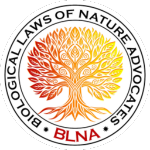The Biological Laws of Nature (known as German New Medicine/Germanische Heilkunde/GNM/GHK), with its unique approach to understanding and treating disease, continues to face scrutiny and resistance from conventional medical authorities. Practitioners and therapists who incorporate the Biological Laws into their practice or teachings often face challenges, including legal risks, accusations of unlicensed medical practice, and professional marginalisation.
To safeguard their work and operate freely, the Biological Laws-aligned therapists and practitioners can form or join a Private Membership Association (PMA), such as the Biological Laws of Nature Advocates (BLNA).
What is a Private Membership Association?
A Private Membership Association (PMA) is a legal structure where a group of individuals come together under a private contract to engage in certain activities or services that may otherwise be subject to public regulations. PMAs operate outside of the jurisdiction of conventional public law, allowing members to interact privately and engage in services that are tailored to their needs, without the same level of government oversight or restrictions as public businesses.
Public versus Private: when practising in ‘Public’, regulations, licensing and restrictions apply. When operating in the ‘Private’, the terms are set out by the Constitution of that private association in the form of a private contract, which creates a separate jurisdiction.
A PMA provides a protective framework for practitioners and therapists who wish to practice alternative methods without risking legal consequences or violating medical licensing regulations. The BLNA serves as such a PMA, protecting the rights of its members to apply, use and study the Biological Laws principles within a private and secure membership framework. A PMA also offers protection and privacy for clients and students of the Biological Laws-aligned therapists, practitioners and teachers/presenters.
BLNA Membership benefits are summarised briefly below. Click on the button in each box for more detailed information.
How can BLNA Protect Practitioners, Advocates and Therapists of the Biological Laws?
As the Biological Laws are not officially recognised in the ‘Public’, there are a lot of restrictions in statute law, licensing and and other regulations in the ‘Public’ that prevent any professional activity concerning the Biological Laws. This has the effect of keeping the Biological Laws suppressed and preventing their professional use as follows:
- Insurance/Licence/Professional Body Restrictions: Most therapies or modality need adapting to align with the Biological Laws, and this may contravene terms for membership to professional bodies and/or therapy insurance. Other restrictions are also often imposed by therapy insurance or licences (such as not accepting cancer patients).
- Fear of condemnation for ‘practising without a licence’ and many legal implications including interference from authorities and the potential of litigious action.
Active Members of the BLNA (Professional Members and Advocate Members) are able to practice and advocate free from public jurisdiction by way of using carefully worded disclaimers and agreements that create a ‘private contract’ between them and their clients, whether they be therapy clients or participants in workshops or talks. These disclaimers ensure that:
- If the need arises, you have legal support from the BLNA who will confirm that you are acting in the ‘Private’.
- Your interaction with your client remains private.
- You have your client’s informed consent to being bound by private contract law.
- Your client accepts your service is educational and advisory only, and any decisions they make are their own.
How can a BLNA Protect Clients and Students of the Biological Laws?
Clients and students of Professional and Advocate BLNA members (known as Active Members) become Associate Members of BLNA by association and agreement, for the duration of their interaction with the Active Member, not only at that given time, but also in any on-going engagements (may be dependent on the contract/disclaimer you have with the associated Active Member).
Basically, a client or student steps into the BLNA’s jurisdiction when they are browsing an Active Member’s website, at a therapy session, at a talk/presentation or in their social media group. This must be agreed in order for the Active Member to be able to offer their services to clients/students without fear of the consequences of practising or speaking in ways that may be considered controversial in the public arena and jurisdiction.
Associate Members will receive the following benefits and protection of BLNA whilst they are temporary members:
- Reassurance that the BLNA member they are associated with is bound by the BLNA Constitution and Code of Conduct, that they will therefore provide a high quality of service.
- The freedom to ask questions and express themselves without prejudice, judgment or persecution.
- The knowledge that the professional has greater freedom of speech and can provide clients and students with unbiased, unrestricted information that would usually not be possible in the public arena.
- BLNA’s Complaint Procedure offers Associate Members the ability to report any Active Member that abuses their membership or does not adhere to the relevant BLNA Code of Conduct.
